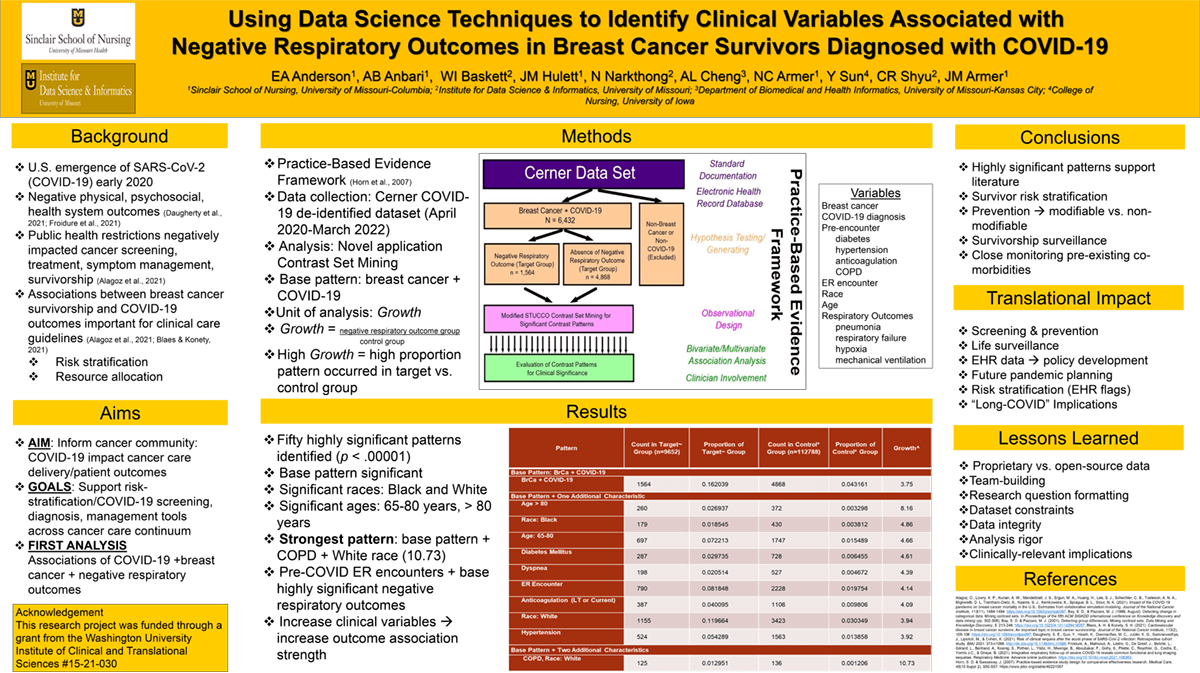
Introduction: Studies have shown the negative physical, psychosocial, and health system outcomes resulting from the COVID-19 pandemic. These outcomes have impacted screening, treatment, symptom management, and survivorship of breast cancer survivors. Understanding associations between breast cancer survivorship and COVID-19 outcomes is important to developing care guidelines to improve outcomes. The study goal of this reported research was to explore associations between COVID-19 and negative respiratory outcomes in breast cancer survivors using the Cerner Real-World dataset.
Methods: Contrast set-mining was performed to identify variable patterns related to worse post-COVID-19 respiratory outcomes (pneumonia, respiratory failure, hypoxia, mechanical ventilation). Pearson’s chi-squared tests were applied to detect significant differences in categorical variables within and outside mined data in selected subgroups. Patterns of high statistical significance (p < .05, Growth > 2.87-10.73) were prioritized for clinical implications.
Results: Breast cancer survivors diagnosed with COVID-19 who experienced a negative respiratory outcome were contrasted with survivors who did not experience a negative respiratory outcome. Analysis produced patterns of association using a base pattern of breast cancer and COVID-19 diagnoses and adding covariates of interest in a step-wise manner. Fifty highly-statistically-significant patterns associated with a negative respiratory event were observed. In addition to COVID-19 and breast cancer, the most significant patterns included the covariates of: preexisting COPD (Growth = 10.42); age > 80 (Growth = 8.17); White race (Growth = 8.13); anticoagulation (Growth = 6.11); diabetes mellitus and hypertension (Growth = 6.07).
Impact: Identifying significant associations between demographic characteristics, co-morbidities, breast cancer and COVID-19 diagnosis and negative respiratory outcomes may contribute to development of screening and surveillance guidelines for high-risk cancer populations. This knowledge may increase efficiency of resource allocation in future pandemics and during eras of health system constraints.
Organization: University of Missouri – Columbia
Anderson EA, Anbari AB, Baskett WI, Hulett JM, Narkthong N, Cheng AL, Armer NC, Sun Y, Shyu CR, Armer JM